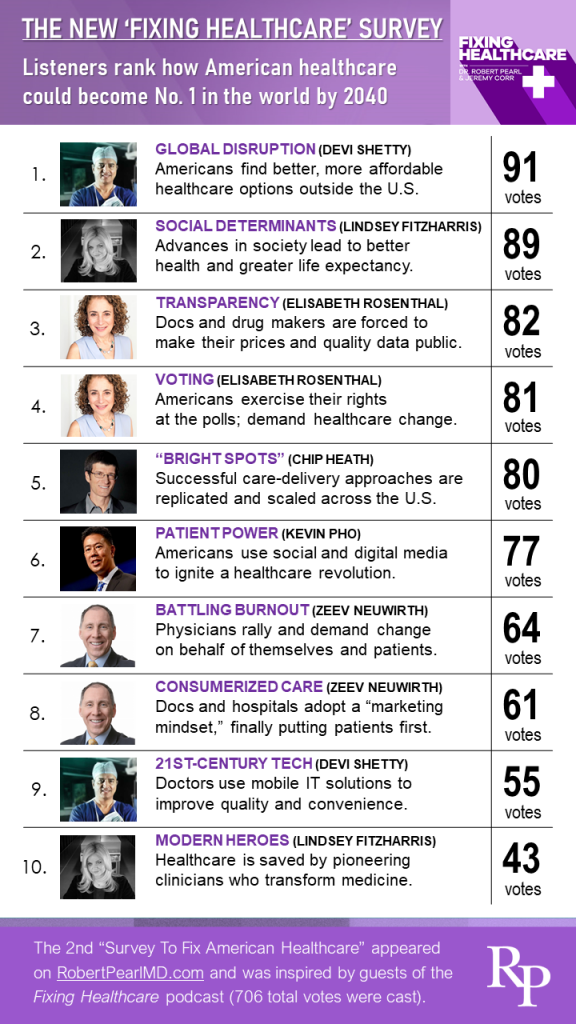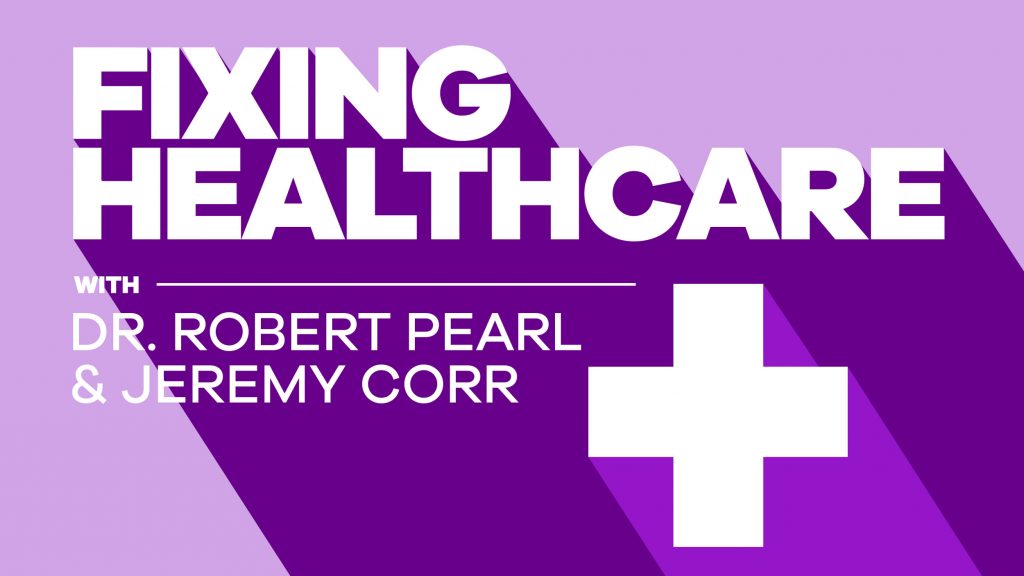When speaking at medical conferences, Dr. Robert Pearl is often asked when and how American healthcare will be disrupted. His response has been same for years: It will likely require a catastrophic event. His assumption was that a global recession would force businesses and families to choose (or demand, if need be) better healthcare options with lower costs, higher quality and improved convenience. Of course, he had no idea a global pandemic would be the catalyst.
As we look ahead to brighter days, let’s look at the results of the most recent “Survey To Fix American Healthcare,” which launched in October 2019. Pearl believes the outcomes proved quite prescient and apropos to the current healthcare crisis.
About the survey
On season two of the podcast, six experts from outside the medical mainstream offered their strategies and insights for fixing American healthcare. Inspired by these conversations, the following thought experiment was posed to listeners:
It’s the year 2040. American healthcare has experienced a stunning reversal in both cost and quality. The United States now boasts the most effective and efficient medical care in the world. The $1 trillion question: How did it happen?
With more than 700 votes cast, here are the final tabulations (answers summarized for space):
Survey analysis
Looking at the top three results, what had once seemed impossible, now appears far more realistic and imminent, according to Pearl. Here are his observations and analysis of the results:
- As Devi Shetty discussed, the world is now shrinking. Just a month ago, very few Americans knew it was possible to obtain medical care via video. Now it is a growing reality, one that people will expect once the pandemic has abated. And why should that expertise be limited by national boundaries?
- Pearl’s interview with medical historian Lindsey Fitzharris revolved heavily around the notion that conditions outside of hospitals have long had a more significant impact on human health than what happens inside them. As we now know, COVID-19 disproportionately harms people who smoke, have chronic diseases and live in lower-income areas. These are all social determinants of health. Let’s hope our nation focuses more intently on preventing these issues once the pandemic is over.
- Finally, Elisabeth Rosenthal has long used her media platform to fight for greater transparency. And yet, the business of medicine has long thrived on its opacity. The consequences are now on full display. Poor preparation, early errors in testing and ongoing cost confusion have stifled our nation’s response to the COVID-19 outbreak—proving just as destructive as the virus itself.
Hopefully our nation will learn from these failures—not just for when the next virus hits, but for years after the current crisis.
Fixing Healthcare is a co-production of Dr. Robert Pearl and Jeremy Corr. Subscribe to the show via Apple Podcasts or wherever you find podcasts. Join the conversation or suggest a guest by following the show on Twitter and LinkedIn.


